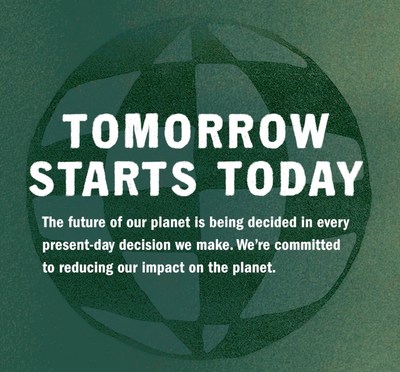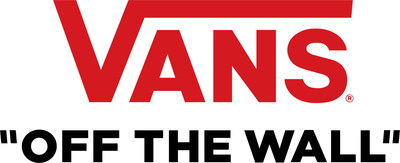Vans Commits to Make Core Materials 100% Regenerative, Responsibly Sourced, Renewable or Recycled by 2030
Vans, a leading action sports brand, has announced ambitious sustainability commitments aimed at transforming its materials and operations by 2030. Key initiatives include using 100% regenerative, responsibly sourced, renewable, or recycled materials, and achieving a 30% reduction in carbon emissions from 2017 levels. Further goals involve eliminating all single-use plastic packaging by 2025 and transitioning to 100% renewable energy in owned facilities by 2025. These efforts align with the United Nations' Sustainable Development Goal 12, showcasing Vans' commitment to environmental responsibility.
- 100% of top materials to be regenerative, responsibly sourced, renewable, or recycled by 2030.
- 30% reduction in carbon emissions from a 2017 baseline by 2030.
- Commitment to eliminate single-use plastic packaging by 2025.
- Transition to 100% renewable energy in owned facilities by 2025.
- Dependence on achieving ambitious sustainability targets within defined timeframes may pose operational challenges.
- Potential higher costs associated with sourcing regenerative and recycled materials may impact profit margins.
Insights
Analyzing...
COSTA MESA, Calif., April 20, 2021 /PRNewswire/ -- Today, Vans, the original action sports brand and global icon for creative expression, announced new global commitments to environmental sustainability and responsibility that will be achieved by 2030. Vans will move towards creating circular products and systems that use regenerative and recycled materials, designed to reduce waste and keep products in use and out of landfills.
Vans' purpose is to enable creative expression by encouraging the "Off The Wall" spirit that comes from expressing one's true self. As part of Vans' commitment to inspire youth culture, Vans recognizes the urgency to move towards circular products and will deploy systems that design out waste, in tandem, aiding the United Nations in achieving the organization's Sustainable Development Goal 12 to ensure responsible consumption and production patterns.
"Enabling creative expression is central to Vans. As a purpose-driven company that is engrained in youth culture, we are leveraging our commitment to creativity to seek new solutions that reimagine the lifecycle of our products and protect the environment for future generations," said Kim Matsoukas, senior manager of Sustainability at Vans. "While there's more work for us to do, through our Vans family, partnerships with PUR Projet, Terra Genesis, and other leading environmental organizations, we're proud to accomplish these goals by 2030 as we look to create a brighter future for our environment, our communities, and our planet."
To achieve its sustainability vision by 2030, Vans' commitments include:
Top Materials will be
By 2030,
- Reducing the average impact of top materials by
35% by 2025 - Utilizing
50% recycled polyester by 2025 - Sourcing
100% sustainably grown cotton by 2025
Carbon Reduction by
By 2030, Vans will pilot and scale regenerative, recycled and responsibly sourced materials covering
- Piloting and scaling regenerative agriculture practices on farms and ranches that produce rubber, cotton, and leather then using these materials in our products
- Exploring bio-based alternatives with lower carbon footprints than traditional petroleum-based synthetic materials
- Converting virgin polyester used in our footwear, apparel and accessories to recycled sources
Eliminate All Single-Use Plastic Packaging
By 2025, Vans is committed to eliminating all single-use plastic packaging and reducing waste at every point of its business model. This includes:
- No plastic shopping bags in our retail spaces by the end of 2021
- Remaining packaging will be minimized, originated from sustainable sources and designed for recyclability
Renewable Energy in
Vans is working toward converting all owned and operated facilities to
Vans recognizes a collective effort and cross-collaboration across the entire Vans Family, from employees and partners, to athletes, ambassadors and consumers when it comes to creating circularity. Partners, including Terra Genesis who generate regenerative rubber and Indigo Ag who supply cotton, are looking forward to working closely with Vans to achieve their sustainability goals.
As Vans pushes towards a better, more responsible future, consumers are encouraged to visit vans.com/sustainability to track the progress of Vans' global sustainability vision and learn more about other brand initiatives that ladder up to Vans' commitment to protecting the environment for future generations.
To commemorate Earth Day, Vans Family members will also have the ability to share what they are doing to make a positive impact on our environment via the loyalty app. Each submission received prior to May 2 will be included in a drawing to be one of ten Vans Family loyalists, who will receive a prize including a Customs Code for PET Customs. To learn more please visit the Vans Family loyalty app.
About Vans
Vans®, a VF Corporation (NYSE: VFC) brand, is the original action sports footwear, apparel and accessories brand. Vans® authentic collections are sold in 97 countries through a network of subsidiaries, distributors and international offices. Vans® has over 2,000 retail locations globally including owned, concession and partnership doors. The Vans® brand promotes creative self-expression in youth culture across action sports, art, music and street culture, and delivers progressive platforms such as the Vans Checkerboard Day, Vans Park Series, Vans Triple Crown of Surfing®, Vans Custom Culture, and Vans' cultural hub and international music venue, House of Vans.
Vans, "Off The Wall" Since '66
www.vans.com
youtube.com/vans
instagram.com/vans
facebook.com/vans
twitter.com/vans_66
![]() View original content to download multimedia:http://www.prnewswire.com/news-releases/vans-commits-to-make-core-materials-100-regenerative-responsibly-sourced-renewable-or-recycled-by-2030-301272835.html
View original content to download multimedia:http://www.prnewswire.com/news-releases/vans-commits-to-make-core-materials-100-regenerative-responsibly-sourced-renewable-or-recycled-by-2030-301272835.html
SOURCE Vans










